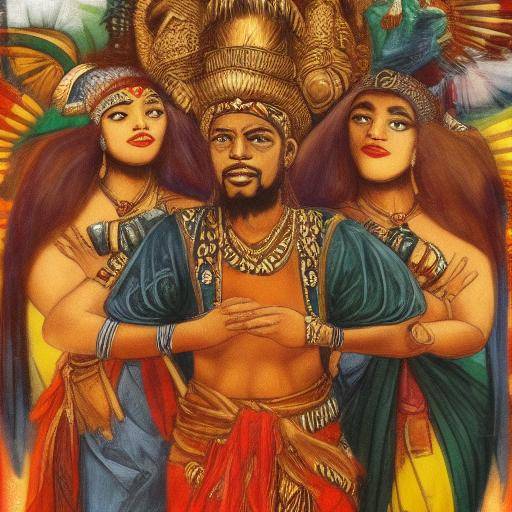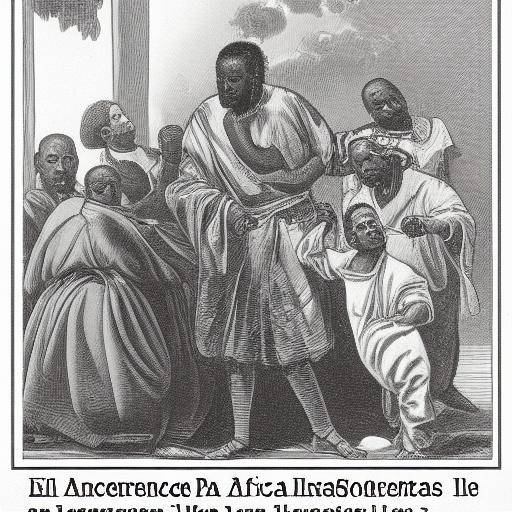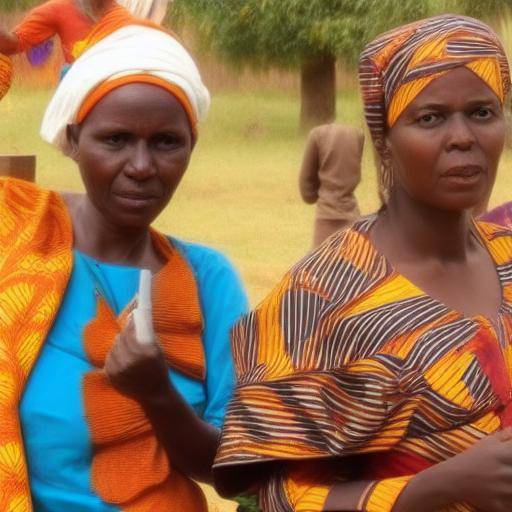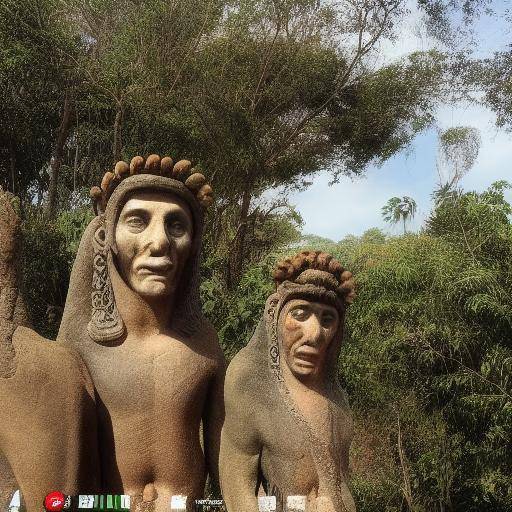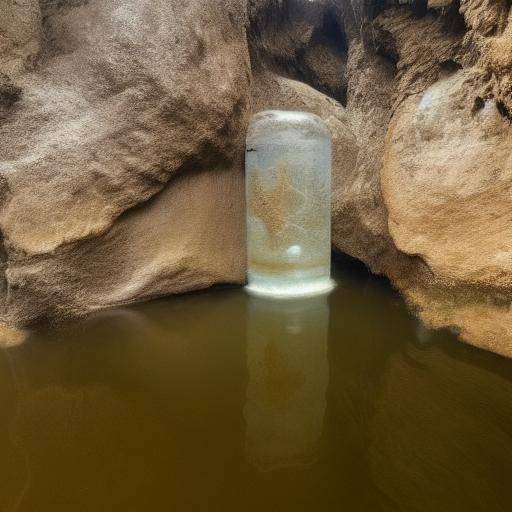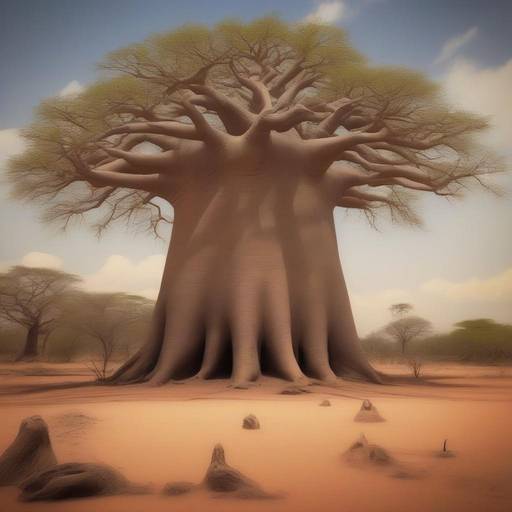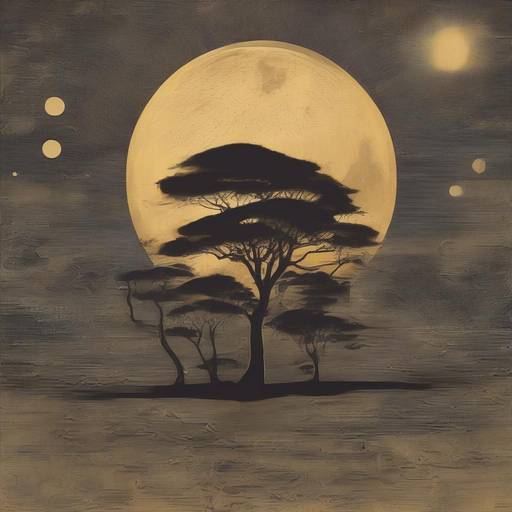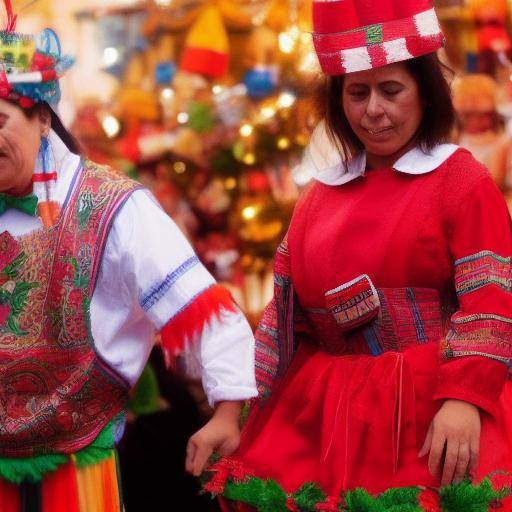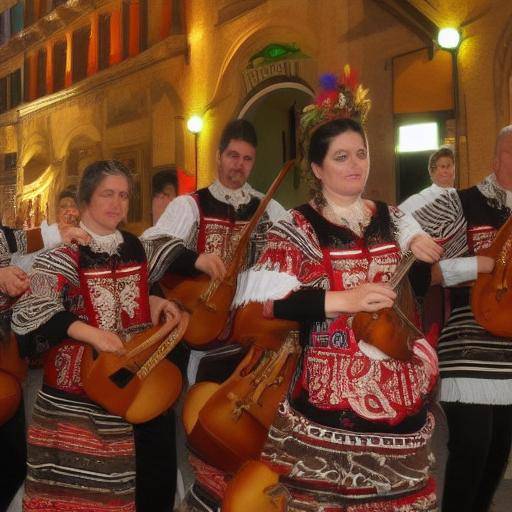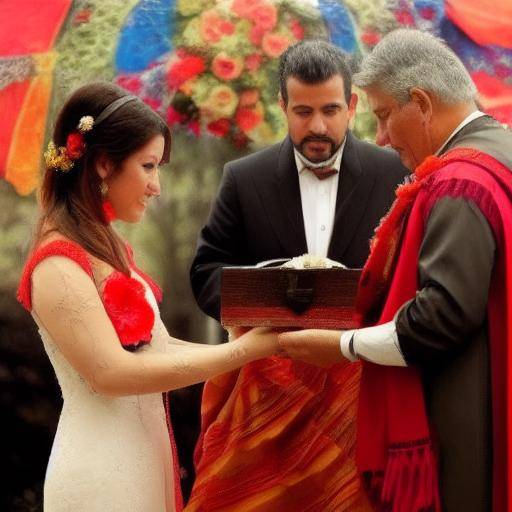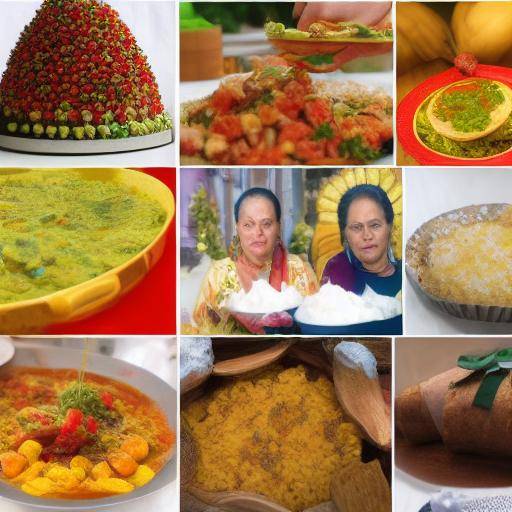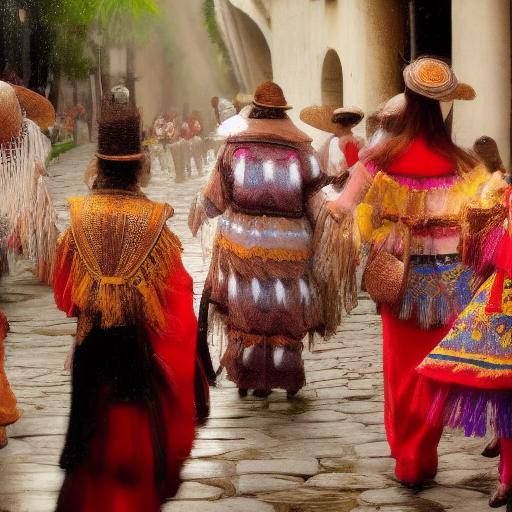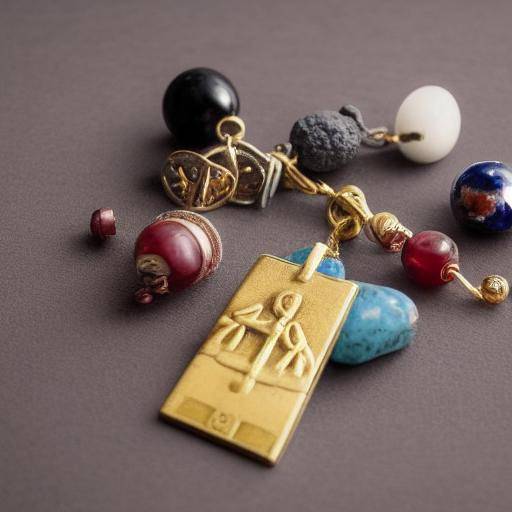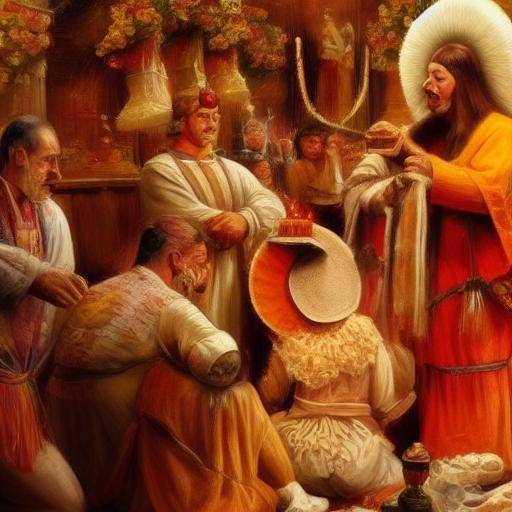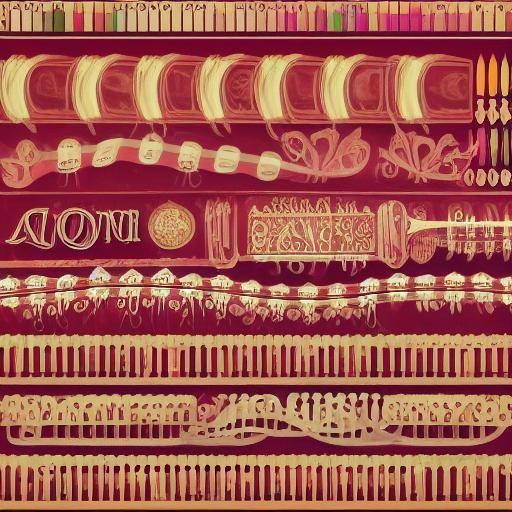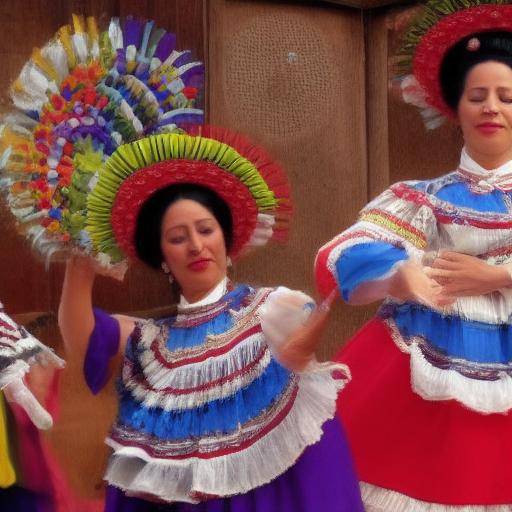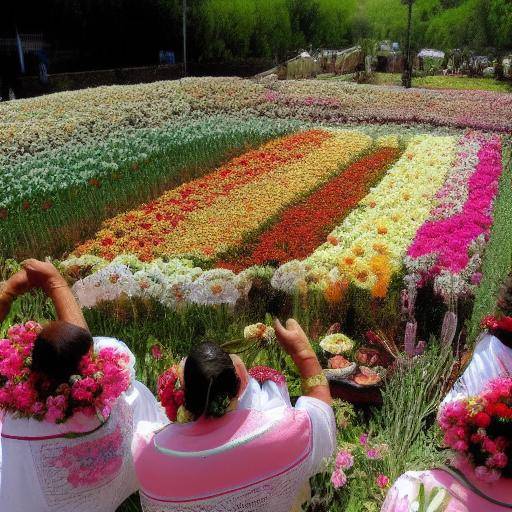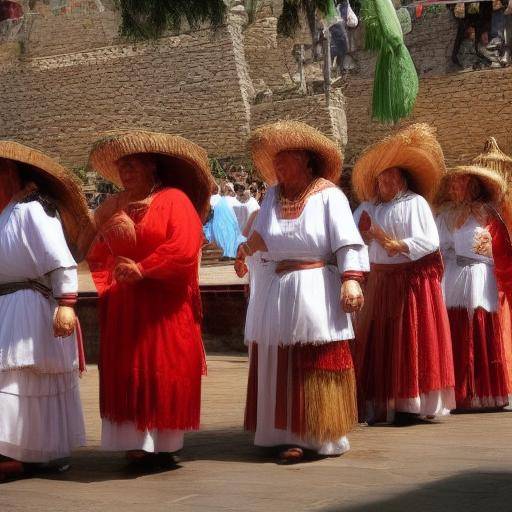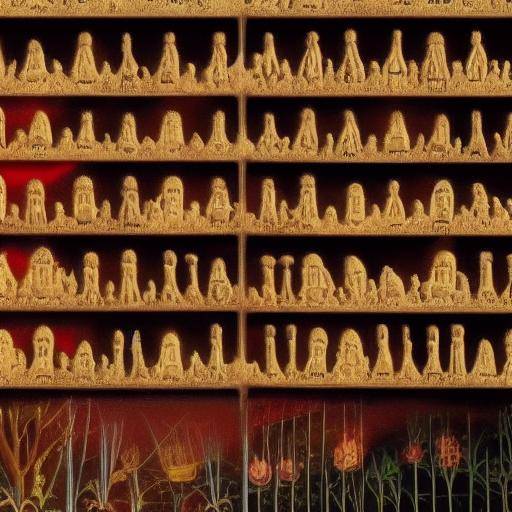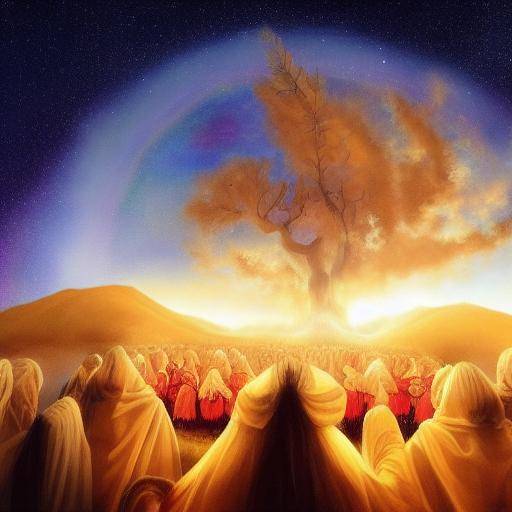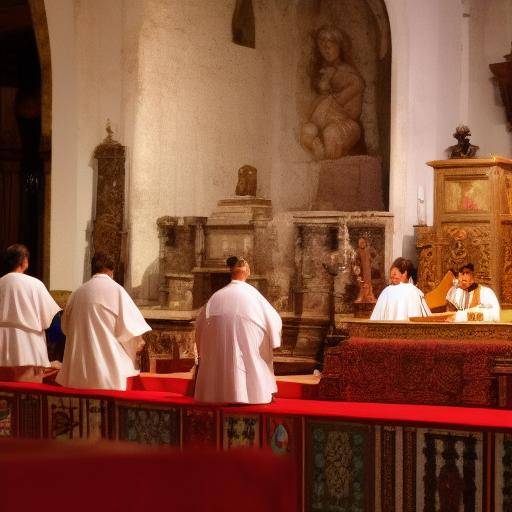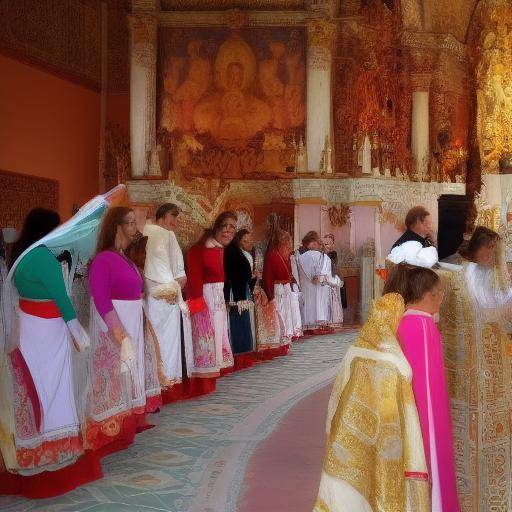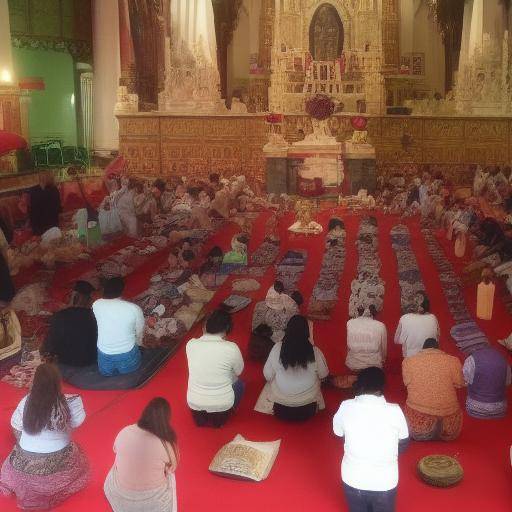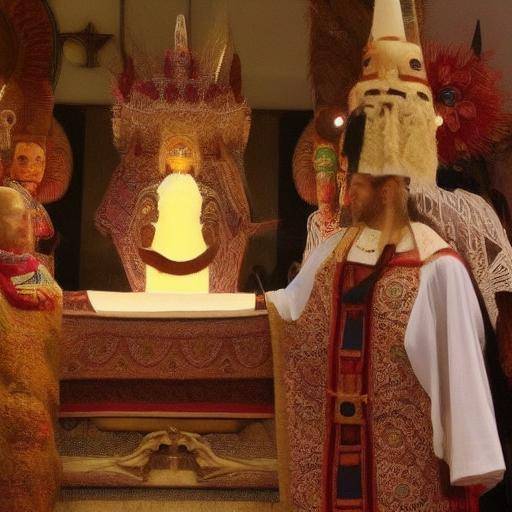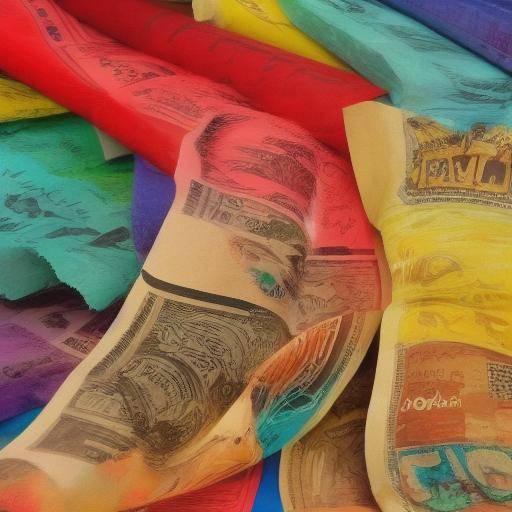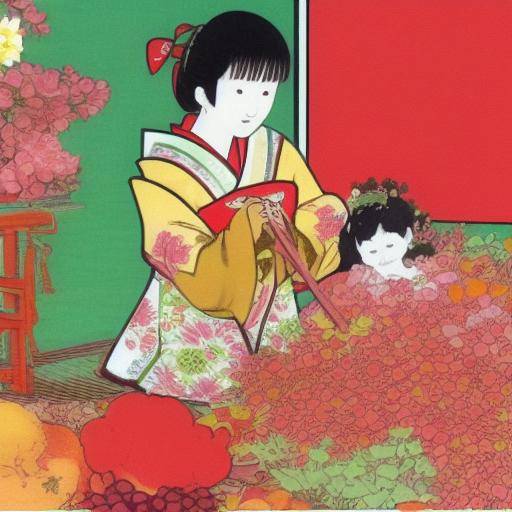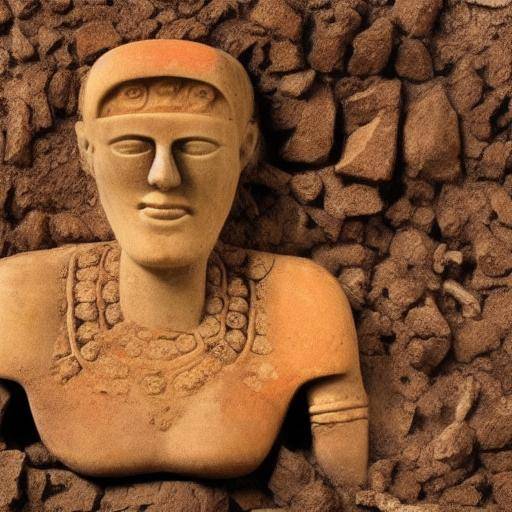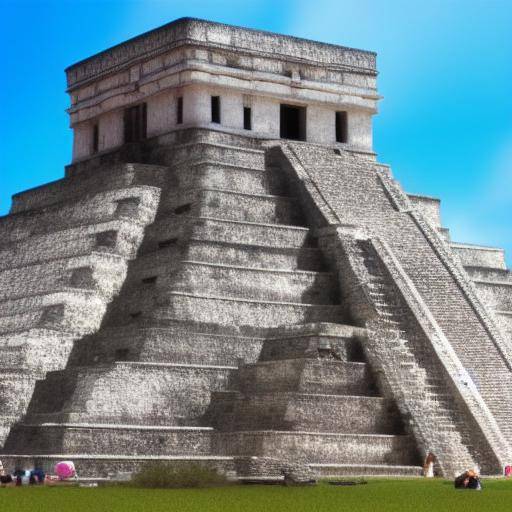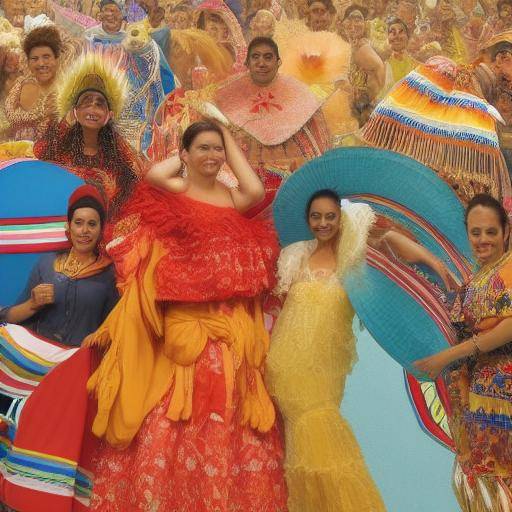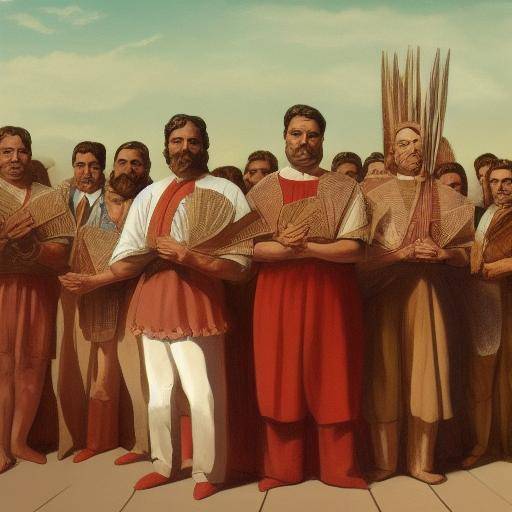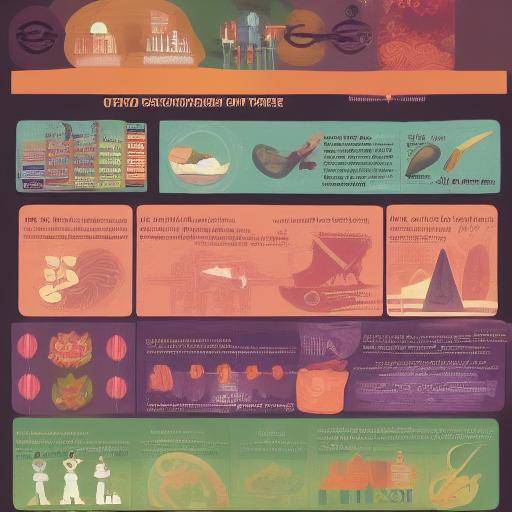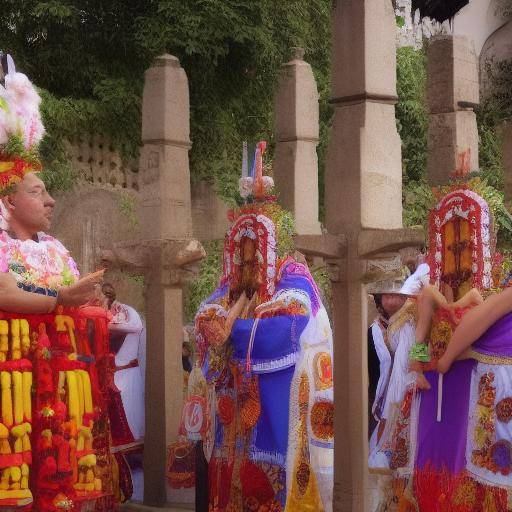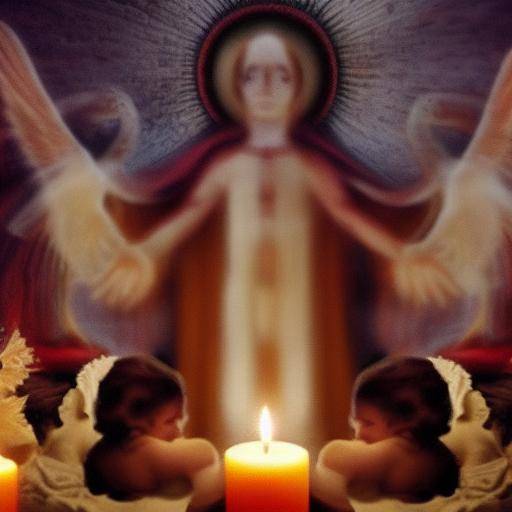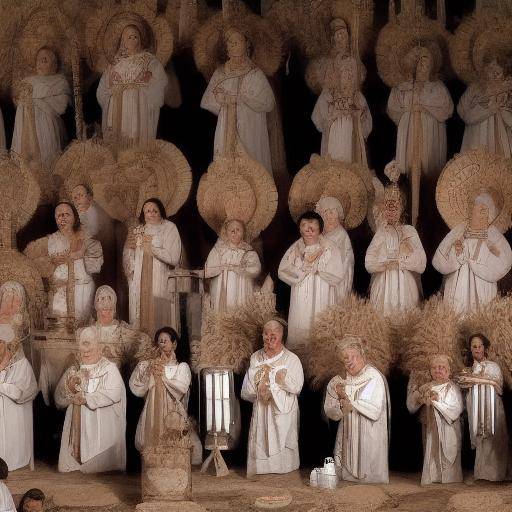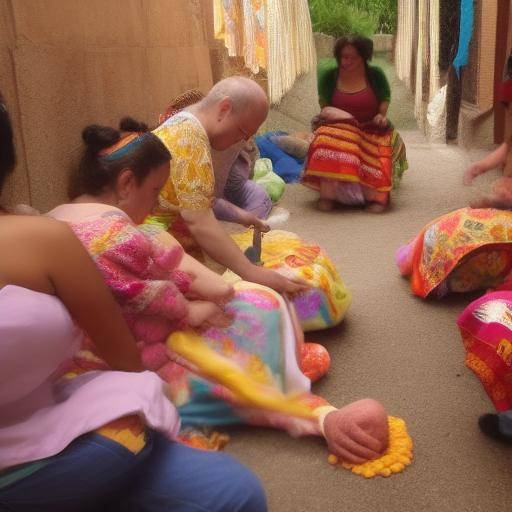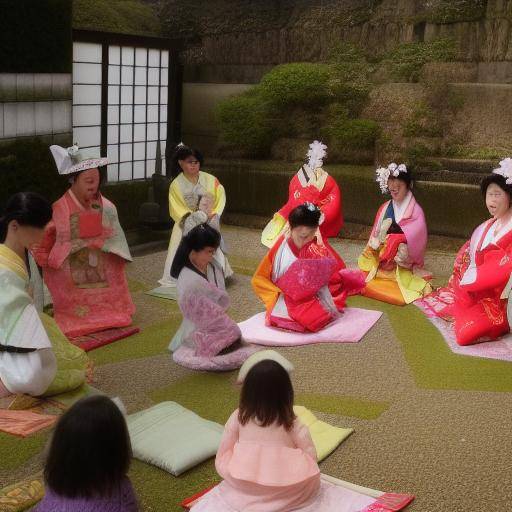
Introduction
In African cultures, purification rituals are a fundamental part of everyday life and have a profound spiritual and cultural significance. From birth to death, these rituals play a crucial role in the physical, mental and spiritual well-being of people. In this article, we will explore in depth the rituals of purification in the context of African mythology, its meaning in the diverse cultures of the continent and its relevance in the present world.
History and Background
The rituals of purification have deep roots in African mythology, which has influenced the worldview and cultural practices of different communities over the centuries. From ancient Egypt to civilizations in West and Central Africa, purification rituals have been an integral part of daily life and significant events.
Purification practices, such as ritual baths, smoke ceremonies, and ingestion of herbs and sacred plants, date back to the dawn of human history in Africa. These rituals were linked to belief in the interconnection between human beings, spirits and nature. It is believed that through purification, balance is restored, negative energies are dissipated and harmony is restored in everyday life.
The purification rituals have been adapted over time, incorporating influences of colonization, imported religions and modern life. However, its importance in preserving cultural identity and connecting with ancestral roots remains fundamental for many African communities.
Beginning of the Rituals of Purification: When did they arise?
It is difficult to establish an exact date for the origin of purification rituals in Africa due to the diversity of cultures and traditions on the continent. However, its practice dates back to thousands of years, rooted in the fundamental beliefs and values of African communities.
In addition to their spiritual dimension, purification rituals have also played a crucial role in physical and mental healing. Traditional healers, known as sangomas in some cultures in southern Africa, they have been guardians of ancient forms of purification, using plants, rituals of prayer and channeling energy to restore health and balance.
Evolution of the Rituals of Purification
During the colonial era and the introduction of Christianity and Islam in Africa, the purification rituals faced significant challenges and changes. Many of the traditional practices were stigmatized and suppressed, leading some communities to secretly practice them to preserve their cultural heritage.
However, in recent decades, there has been a renewed interest in purification practices and a revitalization of ancestral traditions. The international community has increasingly recognized the value of these practices in holistic well-being and in strengthening African cultural identity.
Exploring the evolution of purification rituals allows us to understand its resistance and adaptability over time, as well as its continuing importance in the lives of African communities.
Analysis in Deep
When we examine the purification rituals in the context of African mythology, it is clear that these practices are not limited to simple physical cleansing, but encompassing multifaceted aspects of human life. Purification not only involves the elimination of physical impurities, but also the release of negative energies, the restoration of spiritual harmony and the strengthening of community ties.
Benefits of Purification Rituals
The purification rituals offer a number of benefits for both the individual and the community as a whole. On a personal level, purification can provide emotional, mental and spiritual relief, promoting mental clarity, inner peace and spiritual renewal. Many people find comfort and healing through these rituals, especially in moments of loss, stress or emotional conflict.
Furthermore, at the community level, purification rituals foster social cohesion and strengthen interpersonal ties. These practices can serve as meeting points for the community, reinforcing the sense of belonging and providing mutual support in moments of joy and distress.
Challenges in the News
Despite its cultural and spiritual importance, purification rituals in Africa face significant challenges in the modern era. The impact of globalization, urbanization and the influence of dominant religions have led to the loss of some ancestral traditions and the marginalization of purification practices in some contexts.
Moreover, the pressure of economic development and integration into modern society has led to a decline in the practice of purification rituals, especially among younger generations. The lack of understanding and appreciation for these practices has contributed to their decline in some communities.
However, it is essential to recognize the importance of preserving and revitalizing the purification rituals in the context of African mythology, keeping alive the rich spiritual and cultural heritage of Africa.
Comprehensive review
By exploring the applications of purification rituals in different contexts, it becomes clear that these practices have a significant impact on the daily lives of African communities. From initiation ceremonies to healing rituals and festive celebrations, purification rituals are intertwined with various facets of life.
Applications in the News
Despite the challenges they face, purification rituals continue to play a vital role in contemporary African society. Purification ceremonies in the context of African mythology remain central to religious celebrations, community events and important moments of life.
Also, in the field of health, traditional methods of purification continue to be used in parallel to modern medicine, providing an integral approach to physical, mental and spiritual healing. Traditional healers and healers play a crucial role in promoting holistic well-being, combining ancestral knowledge with contemporary practices.
Futures
As Africa advances in the twenty-first century, there is an opportunity to revitalize and preserve the purification rituals in the context of African mythology. Recognition of the importance of these practices, both locally and globally, provides the possibility of promoting their cultural integrity and their contribution to human well-being.
Comparative analysis
When we compare the purification rituals in the context of African mythology with other cultural and spiritual practices, significant similarities and differences are highlighted. While each culture addresses purification in a unique way, the importance of these rituals as essential elements of human life is a constant throughout the world.
Similarities and Variances
The similarities between the purification rituals in different cultures lie in their intention to restore harmony, relieve spiritual burdens and promote connection with the sacred. Regardless of specific religious beliefs, purification is a bridge to spiritual renewal and healing.
On the other hand, the differences in the methods, symbols and meanings of the purification rituals reflect the cultural and spiritual diversity of humanity. Each culture brings its own vision of the world and its unique practices of purification, thus enriching the global understanding of spirituality and well-being.
Tips and Suggested Actions
For those interested in exploring and experiencing the purification rituals in the context of African mythology, it is recommended to approach these aspects with respect and consideration towards ancestral wisdom. Some practical tips include:
- Research and Respect: Before participating in a purification ritual, it is essential to investigate and understand the cultural and spiritual context surrounding it. Respecting traditions and following the indications of spiritual leaders is essential for meaningful participation.
- Accompaniment of a Guide: Find the guidance of a spiritual guide or community leader that can provide information on the meaning and importance of purification rituals in the context of African mythology. This approach will ensure a respectful and enriching experience.
- Opening and Reflection: Keeping an open mind and being willing to reflect on the teachings and messages that may arise through participation in purification rituals is essential. Be receptive to the transformative experiences that these rituals can offer.
Ideas of Experts and Industry Ideas
To gain a broader perspective on purification rituals in the context of African mythology, it is valuable to collect ideas and opinions from experts in the field. The following are some outstanding ideas of experts in the area:
"The rituals of purification connect us with our ancestral roots and give us an opportunity to renew our spirit in the midst of the demands of modern life. It is crucial that we preserve these practices as an integral part of our African cultural identity." - Professor Wambui Njoroge, Anthropologist/Cultural
"The rituals of purification play a fundamental role in the process of healing and reconciliation of African communities. By promoting respect for our traditions, we strengthen our cultural resistance and promote unity in diversity." - Dr. Sipho Mkhize, Community Psychologist/a
Case Studies and Practical Applications
Case studies and practical applications offer a concrete view of the impact of purification rituals on everyday life. Examples include:
- Birth and Welcome rituals: In many African cultures, purification rituals are carried out to welcome a newborn to the community and ensure their spiritual and emotional protection.
- Initiation rituals: The purification rituals play a crucial role in initiation ceremonies, marking the transition from youth to adulthood and preparing individuals for their roles in the community.
- Healing Ceremony: In times of illness or affliction, purification rituals are used to restore harmony and seek integral healing.
Future Trends and Predictions
In observing current trends, it is clear that purification rituals in the context of African mythology will continue to play a significant role in the future. Some predictions include:
- Revaluation of Ancestral Traditions: A resurgence is expected in the recognition and appreciation of ancestral traditions as vital elements for community well-being and the preservation of African cultural identity.
- Holistic Integration in Health: Further integration of purification rituals is envisaged in holistic approaches to health, recognizing their ability to promote the integral well-being of people.
- Global recognition: A growing global recognition of the cultural and spiritual importance of purification rituals is expected in the context of African mythology, fostering intercultural dialogue in the world.
Conclusion
The purification rituals in the context of African mythology have a spiritual and cultural wealth that transcends time and space. Through the exploration of its origins, its evolution throughout history and its relevance today, it is clear that these practices are rooted in the spiritual connection and the search for harmony in human life. Its preservation and revitalization are essential to keep alive the rich African cultural heritage and promote the holistic well-being of communities.
The purification rituals in Africa, in the context of African mythology, offer a window towards understanding the interconnection between human beings, nature and transcendental. Through healing, celebration and spiritual renewal, these rituals remain a source of meaning and strength for African communities. Its impact also transcends borders, offering valuable lessons on the importance of honoring our cultural and spiritual roots.
Frequently asked questions
1. What are some common purification rituals in African mythology?
The purification rituals in African mythology cover a wide range of practices, including ritual baths with sacred herbs, smoke ceremonies, sacred dances, symbolic food ingestion and healing ceremonies led by traditional healers.
2. How do purification rituals integrate into important events of life, such as birth, initiation and death?
The purification rituals are intrinsically linked to the significant events of life in African communities. From the realization of purification rituals to welcome a newborn to the initiation rituals that mark the transition to adulthood, and the farewell ceremonies that accompany deceased loved ones, these rituals are present at every stage of life.
3. What is the role of traditional healers in the practice and preservation of purification rituals?
Traditional healers, known by various names in different African cultures, play a fundamental role in the practice and preservation of purification rituals. They act as guardians of ancestral wisdom, using expertise in medicinal plants, healing rituals and energy channeling to promote integral well-being.
4. How have purification rituals evolved in response to modern challenges?
The purification rituals have experienced significant adaptations in response to modern challenges, such as urbanization, the influence of imported religions and globalization. Many communities have worked to preserve and revitalize these practices, recognizing their continuing importance in the current context.
5. What perspectives can be offered by the study of purification rituals in the context of African mythology for contemporary society?
The study of purification rituals in the context of African mythology offers important perspectives on the connection between spirituality, culture and human well-being. It also emphasizes the importance of preserving and assessing ancestral traditions as an integral part of cultural and spiritual identity.
6. What are some current initiatives to promote understanding and appreciation of purification rituals in the context of African mythology?
Various initiatives at the local, national and international levels are working to promote understanding and appreciation of purification rituals in the context of African mythology. These include educational programmes, academic research and cultural preservation efforts aimed at revitalizing and promoting knowledge about these practices in the contemporary world.
In conclusion, the purification rituals in Africa, in the context of African mythology, represent a profound expression of the spiritual and cultural connection of African communities. Their preservation and recognition as vital elements of African cultural heritage offer valuable lessons on the importance of honoring our spiritual and ancestral roots. As the world progresses towards the future, it is essential to keep this rich spiritual and cultural heritage alive, recognizing the vital role of the purification rituals in promoting holistic well-being.

